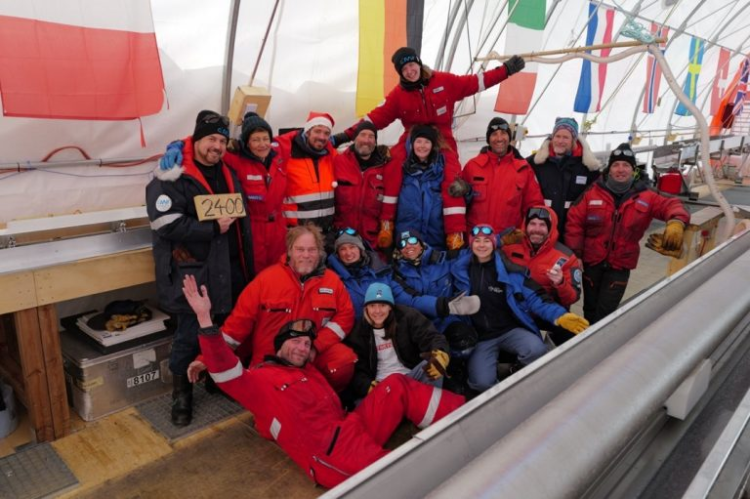Scientists have discovered the longest continuous ice core record of past climate - estimated at more than 1.2 million years old.
From a remote site in Antarctica, an international research team including Dr. Dorthe Dahl-Jensen from UM, has achieved a historic milestone. The scientists successfully drilled a 2,800-meter-long ice core, reaching bedrock beneath the Antarctic ice sheet and uncovering the oldest ice core ever retrieved.
"This achievement is monumental for climate and environmental science," said Dorthe Dahl-Jensen, Canada Excellence Research Chair in Arctic Sea Ice, Freshwater-Marine Coupling and Climate Change at the University of Manitoba. "This ice core provides the longest continuous climate record known, and we hope it will help us understand the connections between Earth's carbon cycle and temperature changes throughout history."

The Beyond EPICA team of scientists
This breakthrough offers an unprecedented opportunity to explore Earth's climate and atmospheric history, including the relationship between temperature and greenhouse gases during the most distant periods of the ice age.
"Congratulations to the Beyond EPICA team for this extraordinary discovery," said Dr. Mario Pinto, Vice President (Research and International). "UM scientists continue to push the boundaries of knowledge and with bold research that will provide solutions to society's most pressing challenges."
The ice core is poised to reveal invaluable insights into the planet's past climate patterns, which are believed to be linked to greenhouse gases preserved in the air bubbles trapped within the ice. It is hoped that this information will give the team clues about how the Earth will respond to rising temperatures.
"The success of this drilling campaign far exceeded our expectations," said Dahl-Jensen. "We are eager to begin extracting the detailed climate information stored in these ice cores, collaborating with the broader team of scientists to unlock this crucial data."
The research project was made possible by the collaboration of scientific and logistical teams from across Europe. The project is funded by the European Commission, with support from national partners across Belgium, Denmark, France, Germany, Italy, Norway, Sweden, Switzerland, the Netherlands and the United Kingdom.
To learn more about Beyond EPICA Oldest Ice project, visit the project website: https://www.beyondepica.eu/en/
Research at the University of Manitoba is partially supported by funding from the Government of Canada Research Support Fund.












